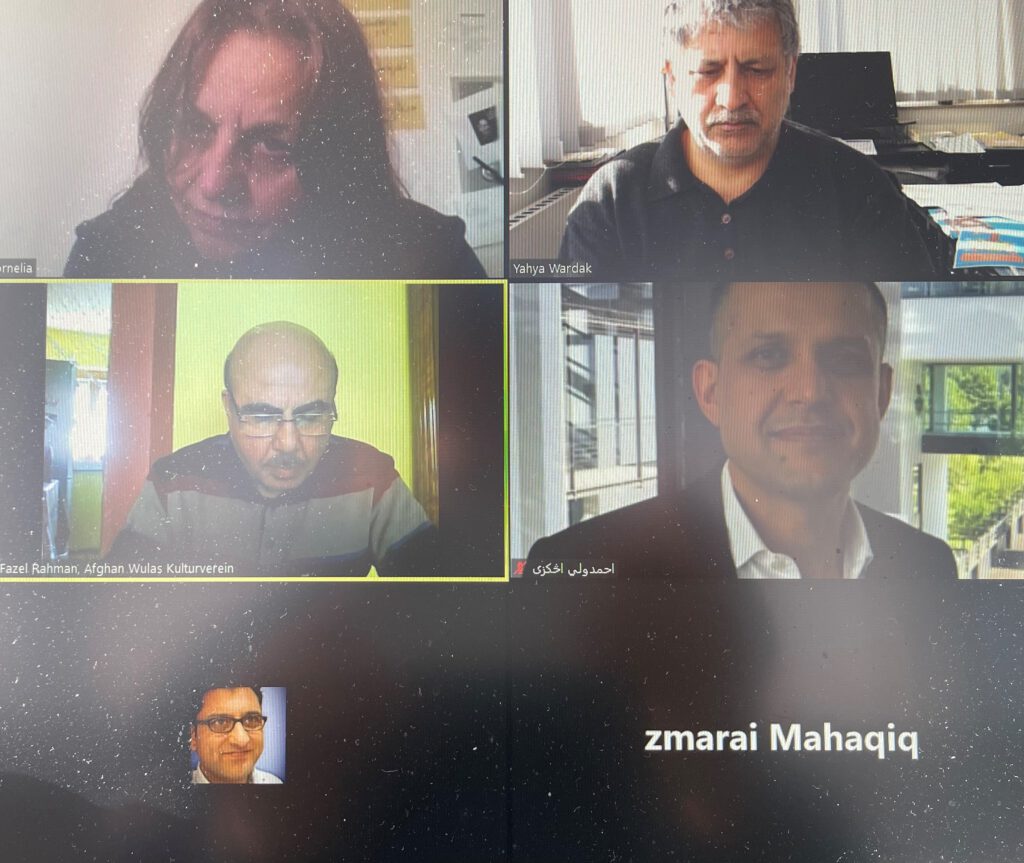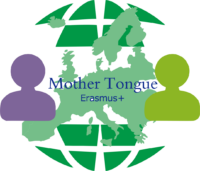A few months ago I, Abdul Ali Rasulzada, started working with “Afghanic” on mother tongue teaching Pashto, for Europe. I am a trained teacher and have worked at the Teacher Training College in Afghanistan for over 10 years before the Russian invasion.
I have taught mother tongue Pashto and Dari in Swedish schools for 33 years.
The goal of my collaboration on this project is to share my experiences partly because I have extensive experience of the work it takes. And also because my home country and my native language are both important as part of my identity.
In the beginning we did not have the opportunity to arrange physical meetings due to the pandemic. However when the restrictions eased up, we met. First in Bonn Germany, then Copenhagen Denmark, thirdly Malmö Sweden and the last time a week ago in Vienna Austria.
I. Bonn
In Bonn we spoke to invited guests, whom represented both older and younger Afghans. These guys have written books, dictionaries, grammar books and history books. They all had an interest in affirming their mother tongue Pashto and Dari. We discussed the possibilities of how Afghan children and adults can access their works
II. Denmark
The group’s meeting in Denmark was very effective. Each member presented what work they have produced to preserve the mother tongue and how we can best get future generations to use their native language.
During this meeting, we visited a group of parents teaching mother tongue in an association room. There was a good atmosphere and the parents accompanied their children to these meetings. While the children were busy with their studies, the parents cooked and prepared dinner, which they then ate together while they used their mother tongue, chatting and enjoyed the company with their children.
The next day we met many invited guests from all over Denmark. The guests included journalists, poets and generally active people who want to convey their native language to the younger generations.
On the third day, I presented to the group participants more than 30 textbooks and study materials that I have produced. At the same time, I explained how the mother tongue teaching syllabus is written in the Swedish school system, based on my personal experience.
Every day, participants with an interest in mother tongue teaching also had access to follow our conversations via Zoom.
These workshop participants could ask questions and get answers directly from us.
III. Malmö
In Malmö, we had intended to meet the Principal of Mother Tongue Teaching and also get the opportunity to follow a mother tongue lesson at a school in Malmö, but unfortunately due to Covid-19 we were not able to carry out these two activities.
We received a visit from one of my former students whom volunteered and he will also help us on future projects. The same day we met a former Pashto teacher as well and he had great ideas he presented.
Via a link, we held a meeting with Ahmad Shah Baba’s founder, Nangyalei Basakai, who has been conducting Pashto teaching in Holland for a long time.
IV. Vienna
In Vienna, our goal was to compile the activities in each country and to plan the upcoming project. Also during this meeting, invited guests came and provided great input on how they felt the access to mother tongue Pashto and Dari could be met, especially in Austria and also within the EU.
Concluding remarks
All the meetings have been very rewarding and valuable. It was an opportunity to share information and experiences about mother tongue preservation and use.
Whilst we discussed the possibilities of mother tongue teaching in each country. Of all the countries in the world, only Sweden have mother tongue instruction in the school curriculum.
I presented a lot of my 33 years of pedagogical methods and working methods that we in Sweden have developed and actively follow up.
We hope that future projects will lead to more countries establishing mother tongue education. So that our younger and older compatriots in Afghanistan and everywhere in the world will be able to access material via the platform we are now establishing.
Ali Rasulzada,
Sweden, Febraury 2022



